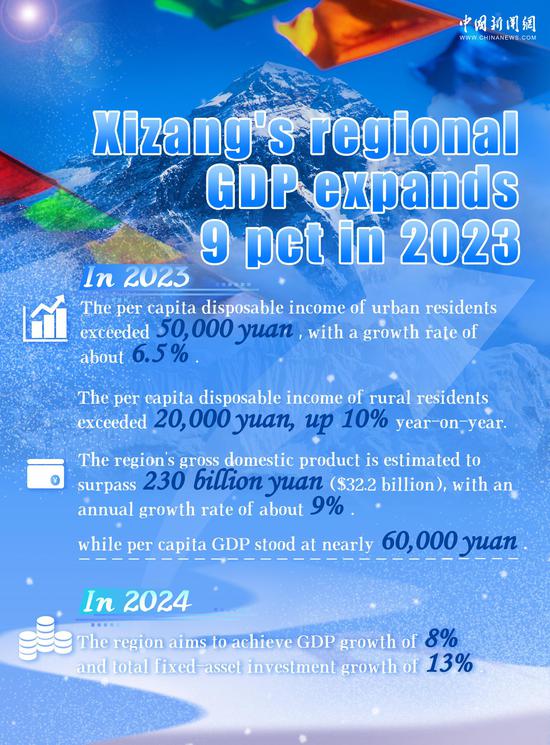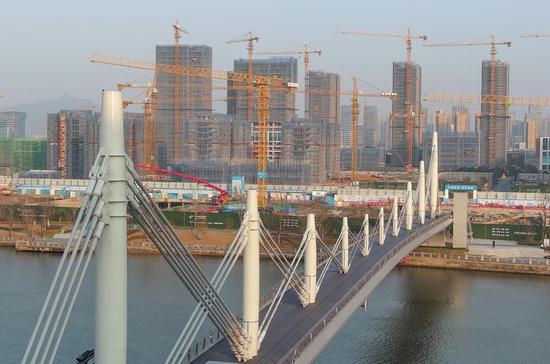While China's top leadership has reiterated the nation's commitment to further deepen reform of the capital market and continue efforts to attract more long-term foreign investment, international institutions have expressed a positive outlook on the Chinese market that is based on the prospects of China's economic recovery and further opening-up.
While meeting on Wednesday with members of the China Securities Regulatory Commission International Advisory Council, Vice-Premier He Lifeng said that the overall trend of China's economic recovery and long-term improvement remains unchanged.
China will continue to deepen reform and two-way opening-up of its capital market, facilitate cross-border investment and financing, and attract more foreign financial institutions and long-term capital to the country, the vice-premier was quoted as saying by Xinhua News Agency.
Established in June 2004, the International Advisory Council is an expert advisory body of the CSRC, composed of senior overseas financial regulatory officials, senior executives of financial institutions, well-known experts and scholars.
Sun Lijun, co-head of global banking for UBS Securities, said that more solid policies for the two-way opening-up of the capital market are expected to be released this year, as China is dedicated to advancing the high-quality development of the financial sector, following the new requirements set out during the Central Financial Work Conference late last year.
Progress made in 2023, both in introducing capital to the Chinese market and facilitating Chinese companies' reach in overseas markets, also reflects China's firm stance in expanding high-level opening-up in the capital market, said Sun.
Helen Huang, managing director of Fidelity International China, said the country will continue to deepen institutional opening-up in terms of market rules, the introduction of foreign institutions and product development.
On Jan 2, global asset manager AllianceBernstein announced that it had been granted a permit from the CSRC to establish a mutual fund business in China via its wholly foreign-owned enterprise, AllianceBernstein Fund Management Co (AB China).
Ajai Kaul, chairman of AB China, defined the Chinese asset management industry as "vibrant" and "dynamic".
AB China General Manager Alex Qian said he believed that there are "vast investment opportunities in the Chinese market".
David Huang, senior investment strategist at AllianceBernstein, said that most A-share investors may feel uncertain about the future, especially given that the benchmark Shanghai Composite Index has fallen below the 3,000-point level and the bluechip-heavy CSI 300 index has dropped for three years in a row.
But he said the odds are high that the A-share market will rebound this year, given the market's lower valuation, the prospect of companies' double-digit profitability in 2024 and room for further policy stimulus.
Kinger Lau, chief China equity strategist at Goldman Sachs, and his team hold an "overweight" recommendation for A shares in 2024, saying that the CSI 300 will gain by 11 percent this year.
There are "strong reasons" to invest in the A-share market this year, including the market's low sensitivity to geopolitical tensions and global liquidity, supportive government policies and this year's growth target, said Lau.
As China's economy stabilizes and strikes a rebalance this year, A-share companies specializing in the production of mass consumer goods, artificial intelligence and new infrastructure, as well as technologically advanced small and medium-sized enterprises, are likely to have a more bullish performance, Lau said.
The Shanghai Composite Index climbed 0.31 percent on Thursday, while the Shenzhen Component Index closed 1.47 percent higher. The technology-heavy ChiNext in Shenzhen jumped 1.95 percent.


















































 京公网安备 11010202009201号
京公网安备 11010202009201号